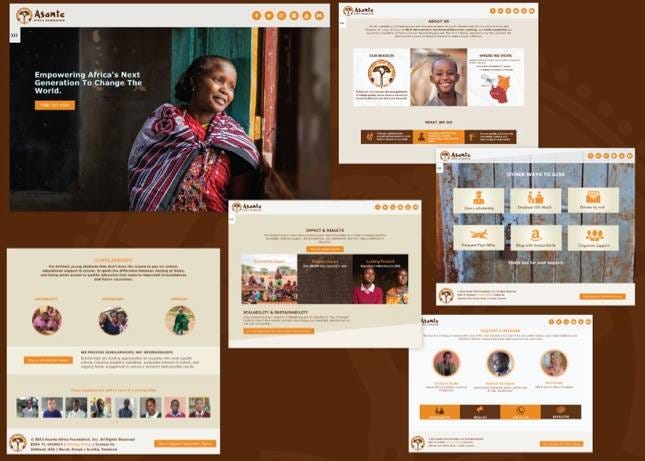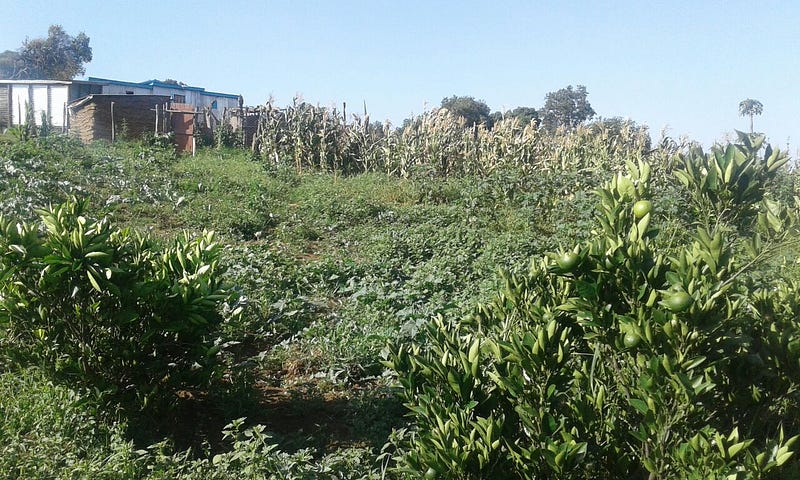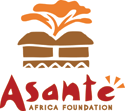“The roles that men and women play in society are not biologically determined. They are socially determined, changing and changeable.” – United Nations
There are scientists amongst us who will leave a legacy on the world. They will help complete the puzzle of disease, provide a light for innovation, close the canyons of ignorance, and invent new ways to look at this world. They will spend years cataloging, equating, failing, and trying again. They will learn another language — that of math and the sciences — and spend their lives using this language to uncover solutions and dissolve mystery. They are our translators of the possible.
With the challenges we face, socially and ecologically, we need every curious mind.
Rahel B. Faustine of Tanzania — supported through primary and secondary school, via the support of Asante Africa Foundation throughout; one of seven children supported by their mother’s subsistence farming — is one of these translators of the possible. After completing primary school in 2011, she joined secondary school, 5 kms away from home. Long distances and limited commuting resources is a major reason why girls dropout of school. Adding to this was a severe ear infection, which made it more difficult for her to travel during cold and rainy days. However, nothing deterred her. She successfully completed her secondary education and joined Arusha Technical College in 2016 to pursue Electronics and Telecommunications engineering.
“I decided to pursue Electronics Engineering because I was curious. People discouraged me and told me that a woman can’t be an engineer. I want to work hard to change these thoughts. I want to prove that a girl can achieve anything, if she has focus and vision. An educated girl has the potential to change the world.”
On this International Day of Women and Girls in Science, we celebrate her and the millions of other girls and women on this path.
Rahel explaining her recent experiments
But Rahel’s is too rare an opportunity. Two-thirds of illiterates around the world are women, not even permitted the resources or access to a basic education, much less the study of math and science and the advancement to higher levels of schooling. This is a reality of access but it also a long held social choice, an inequity that exists around the world — and a priority that needs to change.
With a higher level of education indicating not just the health and opportunities of women but of whole families and generations, with how essential science and technology is to participation in shaping our 21st Century world, the United Nations has committed to gender equality as a fundamental part of the 2030 Agenda for Sustainable Development.Actual sustainable development — the breath, freedom, and resiliency of and for our world’s population — is reliant on the opportunities available to girls and women. They are our most powerful translators of the possible. Our investment in the language of empowerment — including the language of math and science — our belief in their possibility, is crucial to expanding the possibilities of generations.
“According to a study conducted in 14 countries, the probability for female students of graduating with a Bachelor’s degree, Master’s degree and Doctor’s degree in science-related field are 18%, 8% and 2% respectively, while the percentages of male students are 37%, 18% and 6%.” – United Nations
In partnership with the United Nations and thousands of organizations and people around the world — and in East Africa, particularly — we’ve made a commitment to education as a path out of poverty and towards sustainability for all. We’ve seen the transformation possible. And we’ve seen what our girls can do.
We want our generation to be the one that ends extreme poverty. We, as a world, are close and it is women and girls around the world, in our classrooms and beyond, that are our greatest levers. We must be their greatest champions. Today marks a day where the world renews our commitment to girls and women in their sciences, and celebrate their possibilities in this fight. Onward, great scientists.
“For this I must work . . . to make sure that I change incredibility to credibility and possibilities from impossibilities.” — Rahel B. Faustine




 Marie shared “Providing quality education through national strategies is a challenge in itself. But it’s made harder when implemented in rural school districts where a variety of factors from remote locations to the lack of resources come into play. Teaching critical thinking, problem solving, and effective communications are 21st century skills that are required from students today.” How are they to learn it in the current landscape?
Marie shared “Providing quality education through national strategies is a challenge in itself. But it’s made harder when implemented in rural school districts where a variety of factors from remote locations to the lack of resources come into play. Teaching critical thinking, problem solving, and effective communications are 21st century skills that are required from students today.” How are they to learn it in the current landscape?

























